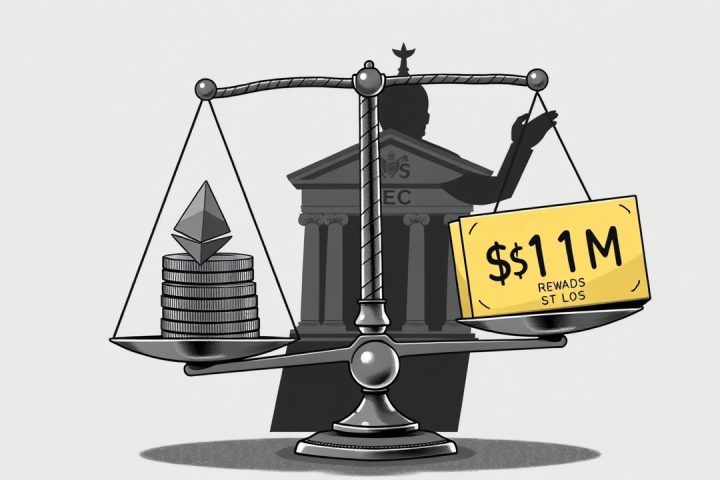Andreessen Horowitz’s Proposal to the SEC
The venture capital firm Andreessen Horowitz, commonly known as a16z, has urged the Securities and Exchange Commission (SEC) to initiate a comprehensive revision of the regulations governing how registered investment advisers (RIAs) manage and safeguard digital assets.
Advocating for Direct Cryptocurrency Holding
In a formal missive directed to the SEC’s Crypto Task Force, sent on April 9, a16z advocates for allowing RIAs to hold cryptocurrency directly, provided they adhere to specific regulations and safeguards.
As the SEC reviews these proposed changes, the outcome could significantly influence the extent to which investment advisers can handle cryptocurrency, moving beyond traditional custodial frameworks. a16z has positioned itself as a leading voice in the industry, primarily due to its substantial investment stakes and its active involvement in policy discussions.
Five Essential Principles for Crypto Custody
Recently, the firm elaborated on its stance through a blog entry that outlined five essential principles for crypto custody, aiming to provide a pathway for regulatory reform while ensuring investor safety. A16z emphasized in its correspondence that the SEC should issue new guidance aimed at facilitating custody practices for crypto assets, even if such an approach is only temporary until more permanent regulations are established.
Self-Custody of Security Tokens
The firm is also advocating for RIAs to be allowed to self-custody security tokens, which are defined as cryptocurrency that qualifies as securities under the law. Additionally, a16z is seeking clarification that such self-custody would not infringe on the Custody Rule or jeopardize fiduciary responsibilities of RIAs.
Under the Investment Advisers Act of 1940, RIAs operate as fiduciaries, which entails strict adherence to rules regarding custody, record-keeping, and disclosures.
Outdated Regulations and Industry Complexities
A16z argues that the existing regulations are outdated and were crafted for a financial landscape that did not account for the complexities introduced by digital assets, such as private keys and on-chain voting rights. They urge the SEC to recognize the diversity within the crypto asset landscape, asserting that not all digital currencies are the same and that varying custody mechanisms exist.
The firm highlighted that holding crypto assets through conventional custodial accounts may prevent RIAs from accessing crucial economic or governance rights related to these assets, including staking, yield farming, or on-chain voting.
Risk Mitigation Framework for Storage Methods
The letter also cautioned against overly rigid categorizations of storage methods, such as hot versus cold wallets, and instead calls for a risk mitigation framework that prioritizes security and prevents loss, theft, or mismanagement of assets, irrespective of the storage method employed. A16z made it clear that their goal is not to broaden the Custody Rule‘s application beyond securities but to align its objectives—security, timely disclosures, and independent verification—with the evolving nature of tokens.
Ongoing Discussions in Regulatory Reforms
The timing of a16z‘s appeal coincided with remarks from Mark Uyeda, the then-Acting Chair of the SEC, who indicated that the agency might reconsider the $100 million threshold for RIA registration. Uyeda’s comments at a securities law conference suggested that upcoming reforms could alleviate some of the regulatory pressures faced by smaller advisory firms. While Uyeda has since been succeeded by Paul Atkins, his statements indicate ongoing discussions about regulatory reforms within the SEC.

















